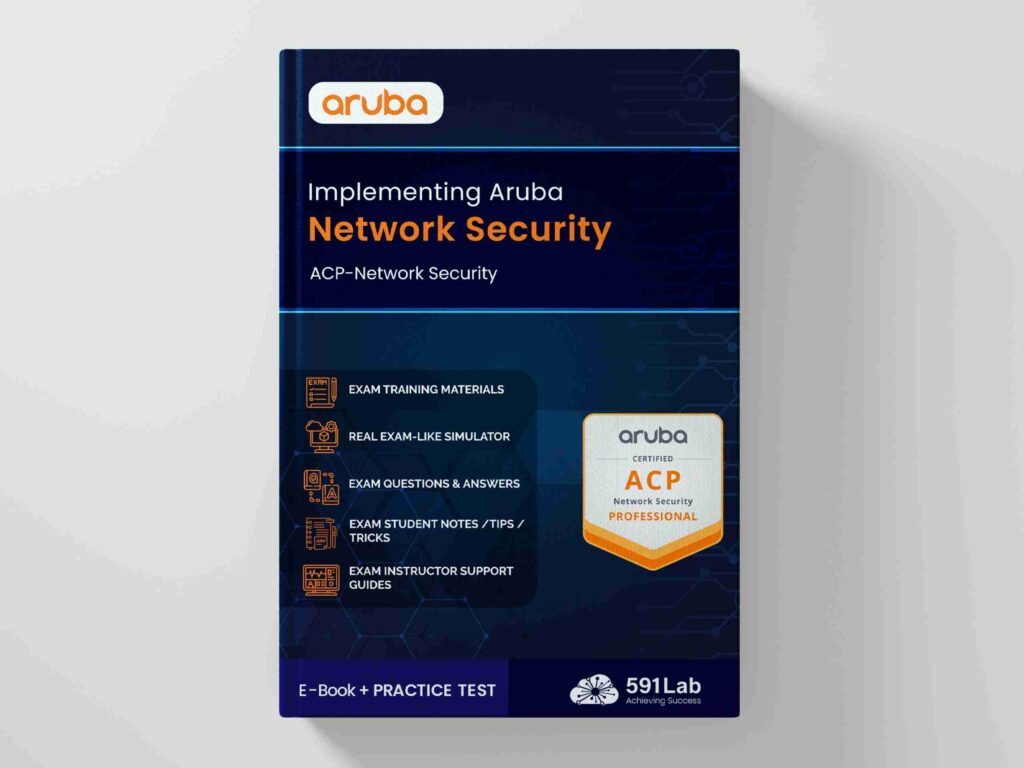In today’s digital era, IT professionals need more than just general networking knowledge—they need vendor-specific expertise that aligns with modern enterprise needs. One such in-demand certification path is offered by Aruba, a Hewlett Packard Enterprise (HPE) company known for its high-performance wireless networking, switching, and edge solutions. Whether you’re just starting your IT career or looking to specialize in secure enterprise networking, this beginner’s guide to aruba certification will walk you through what it is, why it matters, and how to get started.

What Is Aruba Certification?
Aruba certification is a structured learning path designed to validate your skills in networking, wireless infrastructure, security, and edge technologies using Aruba solutions. These certifications are part of the Aruba Education Services program and focus on real-world scenarios and enterprise-grade deployments.
The certifications range from entry-level to expert and are ideal for IT professionals working in environments where Aruba wireless access points, switches, controllers, or Aruba Central (cloud-based management) are used.
Why Choose Aruba Certification?
Here’s why Aruba certifications stand out in a crowded networking certification space:
- Enterprise Demand: Aruba is a leader in wireless LANs and edge-to-cloud networking, making their certifications valuable for companies upgrading their network infrastructures.
- Focus on Security & Mobility: Aruba’s certifications include strong emphasis on secure networking, zero trust, and mobile-first access.
- Career Growth: Certified Aruba professionals often see better job prospects, particularly in organizations that deploy Aruba infrastructure.
- Cloud & Edge Ready: With growing emphasis on cloud-managed networks, Aruba Central and SD-Branch solutions are increasingly important—and certification helps you master them.
Aruba Certification Levels
Aruba’s certification track is categorized into five levels:
1. Aruba Certified Networking Associate (ACNA)
The entry-level certification that covers the fundamentals of networking, wireless technologies, and Aruba solutions. Ideal for:
- Helpdesk technicians
- Network support staff
- Junior network administrators
2. Aruba Certified Switching Associate (ACSA)
Focuses on basic switching and campus network configurations. Recommended for those interested in enterprise switching solutions using Aruba CX switches.
3. Aruba Certified Mobility Associate (ACMA)
This certification is perfect for professionals dealing with wireless LANs, particularly Aruba’s mobility solutions like controllers and APs.
4. Aruba Certified Networking Professional (ACNP)
More advanced, the ACNP track comes in several flavors: Mobility, Switching, Security, and Design. It is targeted at professionals who deploy, manage, and troubleshoot complex network environments.
5. Aruba Certified Expert (ACX)
The highest level, validating deep technical skills in deploying and troubleshooting large-scale Aruba environments. Requires extensive experience and advanced preparation.
How to Start Your Aruba Certification Journey
If you’re a beginner, follow these steps:
- Start with ACNA or ACSA: These certifications offer a solid foundation and don’t require previous experience with Aruba products.
- Leverage Free Learning Resources: Aruba offers a free Digital Learning Hub that includes self-paced training, documentation, and exam guides.
- Take Practice Tests: Aruba provides sample questions to help you gauge your readiness.
- Get Hands-On: Practice using Aruba’s virtual labs or, if possible, gain access to physical Aruba hardware.
- Schedule the Exam: Exams are proctored and can be taken online through Pearson VUE.
Who Should Get Aruba Certified?
Aruba certifications are great for:
- IT support staff looking to upskill
- Network engineers and architects focusing on wireless or campus networks
- Security professionals working on secure access control and policy enforcement
- Cloud networking professionals managing edge-to-cloud environments
Final Thoughts
If you’re an IT professional looking to grow in a world dominated by mobility, cloud, and secure networking, Aruba certifications offer a forward-looking path. They not only improve your technical know-how but also make you more marketable in an increasingly competitive job market.
Whether you’re managing a small business network or preparing for enterprise-level deployments, Aruba gives you the tools—and the certification—to stand out. Start with the Aruba Certified Networking Associate (ACNA) and build your way toward becoming an Aruba-certified expert in next-gen networking.
